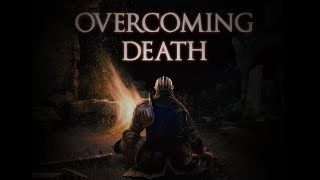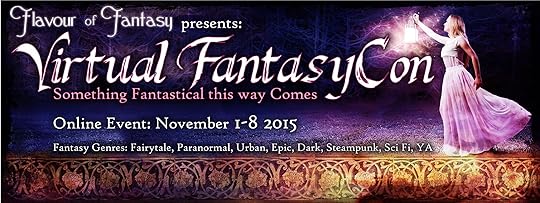Brian Burt's Blog: Work in Progress, page 5
July 4, 2016
Nectar of the SF Gods

I admit, I've always been a bit awed by Gardner Dozois. He's a mythic figure within the realm of speculative fiction, a man with legendary ability to recognize and nurture elite writing talent. I grew up reading Asimov's Science Fiction (as well as Asimov's science fiction... the author, not the magazine ;-). I eagerly awaited each annual installment of The Year's Best Science Fiction and gobbled every collection in the series when I had the chance. So, upon spotting a lone copy of The Best of the Best: 20 Years of the Year's Best Science Fiction on a shelf at the local bookstore, I couldn't help grabbing it and carrying it reverently to the checkout line with trembling hands.
Okay, this wasn't exactly what I expected. It surprised me, caught me a bit off-guard. It wasn't just a "greatest hits" volume. Mr. Dozois specifically eschewed that approach, as he explains in his preface:
"I was still left with the most difficult problem, though — how do you decide what the word "Best" means in this context? Do I go for the best-known stories... which have been reprinted very widely and which most people have already seen, or do I go with other good stories by the same authors that haven't been as ballyhooed? If I didn't use the most famous stories, many people were going to be disappointed that they weren't there. On the other hand, if I used them exclusively, I'd produce a book full of stuff that everyone's already read and that's largely duplicable elsewhere. The only solution I could see was to walk a tightrope between the two, putting in some of the most famous stories and in other cases picking more obscure and unfairly overlooked alternatives instead..."
So what's the verdict on this jaunt along the tightrope? Imagine a tasting for gourmet wines. No, wait — I admit, I live in a place that boasts countless fine craft brews and am more of a beer guy, so let's go with a beer tasting.
You saunter into that remote pub with the arcane but fascinating decor, the one with the mysterious barkeep who seems knowledgeable on every subject. He's hosting a tasting that features his own hand-picked selection of master brews, some renowned and some relatively unknown. He doesn't pour you a pint. Instead, he proffers a paddle containing a flight of small glasses, each filled with a different example of the brewer's art. There are pale ales, lagers, stouts, porters, wheats, blondes, ambers, reds, creams, and goldens. Not all of them are to your taste, of course. Still, it's great fun to sample them. You enjoy your favorites... but it's even more satisfying to discover something unique and unexpected.
That, in a nutshell (because nuts go great with beer! ;-), describes The Best of the Best. Its pages overflow with every kind of SF variety — from short-short stories to novellas, from hard SF to fantasy, from widely acclaimed to underappreciated. One thing is undeniable. The roster of included authors is exemplary: Greg Bear, Gene Wolfe, Lucius Shepard, Nancy Kress, Bruce Sterling, Pat Cadigan, William Gibson, Mike Resnick, Robert Silverberg, Terry Bisson, Connie Willis, and on and on. Every writer featured in this volume is an immense talent; collectively, they've given me more reading enjoyment over the years than I can measure. It's amazing that Mr. Dozois could fit so much SF brilliance into one collection... but he managed.
If variety is the spice of life, then this book is a veritable ghost pepper. You're bound to find something memorable, something that generates more heat than you ever anticipated. Enjoy it, and feel the burn! Just make sure you have plenty of those craft beers handy to quench the fire.

#SFWApro
May 15, 2016
Happy Birthday to Critters!

Nowadays, our short stories are published in eZines, our novels are read as eBooks, we interact with readers on FaceBook and Twitter. It's an online world. Why not, then, online communities where writers can help review and critique each other's works in progress? These "writers' eGroups" are commonplace now; you may belong to one yourself. But I'ld like to pay tribute to one of the pioneers in this space — the Critters Writers Workshop — that was way ahead of its time.
The "Critter Captain," Dr. Andrew Burt (no relation, unfortunately ;-), founded Critters two full decades ago, when the world wide web was not much more than a few shaky strands. He envisioned an online community where speculative fiction writers from all geographies could solicit peers to review their work and provide candid, well-reasoned, and (hopefully) tactful feedback to help shape revisions. The idea was for each member of the workshop to grow their skill set, both by digesting critiques of their own submissions and (just as enlightening) by thoughtfully dissecting and critiquing the works of others. Win-win: submitting and reviewing both help a writer refine his craft.
Critters was one of the first (if not the first) communities of this kind established on the web. It's helped many, many writers improve many, many stories and now boasts more than 15,000 members. Wow! I know I've gained more than I can ever repay by participating in the workshop. The critiques of works I've submitted were invaluable; I think I learned even more by reading the stories of my Critters comrades and struggling to analyze what worked for me as a reader, what didn't, and why. Participating in Critters has changed the way I read fiction... including my own drafts during rewriting sessions, and that's a major blessing.
I've also been fortunate enough to get "sneak previews" into some brilliant draft stories that I know, without a doubt, will find publishing homes, tales for which I would willingly have paid. That's a pretty sweet bonus for any fiction read-aholic!
So happy belated 20th birthday, Critters. I'm afraid I didn't get you anything other than my gratitude (and the occasional online donation over the years). After everything you've given me since I joined your ranks, no gift of mine could measure up.

#SFWApro
March 20, 2016
Air Farce One

Okay, maybe this shouldn't have surprised me... but the Presidential election burlesque has become surreal, even by the (rapidly decaying) standards of the 24-hour news cycle. As crazier behaviors and sound bites hit the headlines every day, I feel like I'm spectating at a three-ring political circus that's either the basis for a mockumentary or a new episode of the Twilight Zone. I keep hoping I'll wake up and it will all be a bad dream: I know people are incredibly frustrated with the status quo (who isn't?), but is this really the best way to shake things up?
About eight years ago, I wrote a short story that represented my first (and probably last) attempt at political satire called Mr. Bates Goes to Washington. In that tale, a billionaire business mogul taps into voter frustration with D.C. gridlock and ends up winning the Presidency, to a large extent by promising to "run the country like a business." The Machiavellian kingmakers who use established party machinery to get him elected end up getting more than they bargained for. CEOs don't flinch from downsizing, outsourcing, and divesting to maximize profit... and their egos make them very difficult to control.
Sound familiar?
My fictional candidate, Gil Bates, is certainly not Donald Trump. But, when I stare in amazement at the way Trump appears to be marching toward the Republican nomination, I do feel chills shiver down my spine. That silly little short story doesn't seem so funny anymore.
I realize that politics and hot air go together... but it feels like American election campaigning has morphed into a different species of superheated gas, a sulfurous variety that expands to fill every nook and cranny of the media world, choking us all with its toxic odor. It's more inescapable than death and taxes.
I'll dutifully cast my vote when the time comes, as best my conscience allows. But, candidly, I'm praying for the curtain to come down on this theater of the absurd. And I won't ever write political satire again; why would I, when actual politicians are doing it in realtime every day?

#SFWApro
February 15, 2016
The New Storytellers

Okay, I admit it — I'm a book snob. I'm the guy who always argues that the novel was far better than the movie version, that the book series was infinitely superior to the TV miniseries; richer, more nuanced, deeper, and more intelligent. I prefer to read it long before I view it (if I ever do), and I'm likely to complain about all the background, context, and seminal scenes that got chopped out of the original story because of theatrical runtime constraints or film directors who thought the character development was "boring."
As much as I love the feel of paper in my hands (or the comfort of an eBook that I can read anywhere at any time), I have to concede that the newest generation of storytellers can do miraculous things with dedication, diligence, the right software, and unbridled imagination. I'm not a gamer, but my boys are (three of them between the ages of 10 and 19). I've caught glimpses of the games they love, and some of those story lines are epic. Recently, my oldest and a friend of his paid tribute to one of these games, the Dark Souls franchise. They entered a contest to create a trailer that portrayed the lore behind the game. In the process, they worked their butts off: composed original music, wrote an original script that was hauntingly poetic, and interwove those elements with video that quite simply stole my breath away. Yes, I'm biased. Still, I defy you to watch the end result of their labors and not bow to the creativity and power of what they've wrought.
Overcoming Death — My Dark Souls Story
I'll always be a book snob. It's a generational thing. I'll always favor the written story over the visual one, I suspect; will inevitably prize the elegant turn of phrase over the magical visualization. Still, I can appreciate the artistry of the new generation of visual storytellers, their craft inspired by video games and YouTube channels. It's not what I grew up with... but it has its own magic, and it's growing on me.
#SFWApro
January 10, 2016
Right What You Know? No!
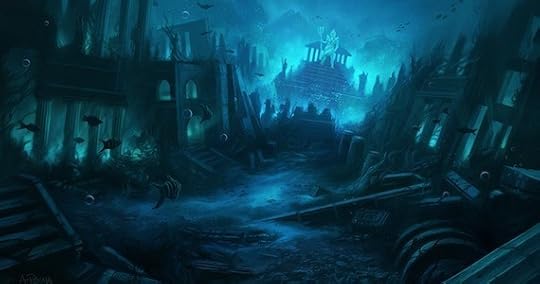
I'm currently working on book 3 of an Aquarius Rising trilogy where much of the action takes place in the Earth's oceans. I'm about to embark on a section of the novel set in the deep ocean, a place about which we humans know very little, arguably less than we do about the Moon or Mars. As a landlocked Midwesterner, born and raised, my real-life experiences leave me woefully unqualified to represent this undersea world. According to the tired old adage to "write what you know," I'm poised to dive (at least figuratively) into very dangerous territory.
I'm okay with that. Because I'd wager any of us who write speculative fiction realize that the "write what you know" advice is dead wrong for us, or maybe just completely misinterpreted when taken at face value. I think what's really intended by this is an exhortation to "know what you write"... and that can be a lot more fun, for the writer and the readers!
What do I mean by know what you write? In my case, it means knowing my limitations, understanding where I want to take the reader, and doing the necessary research to fill in the blanks in my knowledge so that I can provide readers with a fictional experience that feels authentic.
This resonates deeply with me, maybe because I face a similar challenge with my day job. I work in information technology — more specifically, cybersecurity these days — and it's an area that evolves so rapidly that nobody can keep pace with every breakthrough, every new technology, every shifting paradigm across the vast continuum it encompasses. In IT, nobody can know it all anymore; I'd wager that even IBM's famed Watson has his blind spots.
So, to this battle-scarred IT warrior at least, the crucial skill is not to know the answers off the top of your head. A skilled info-tech professional needs to know how to do the necessary research, quickly and efficiently, to learn what's needed to move forward and make sound decisions. In most cases, you don't need to be an expert; you have to know enough to get the job done.
In fiction writing, I think the challenge is much the same, especially in the SF genre where the whole point is to extrapolate beyond the known and the familiar, to take readers into realms that don't exist outside of a writer's twisted imagination. Solid research is still essential, of course, to make sure this shared illusion is convincing, that the reader doesn't see the man behind the curtain or strings attached to the levitating ghosts. If the artifice becomes obvious, if the pieces of the imaginary world don't properly align or, worse, openly clash, then the magic dissolves into a failed parlor trick that leaves the audience feeling unsatisfied and ill used.
I don't want to be the magician cowering onstage while the overripe fruits and rancid veggies rain down on him from a grumbling crowd.
Here's the coolest thing about avoiding that painful outcome: doing the research can be an absolute blast. Learning about a remote part of the globe, a bizarre biome, or a cutting-edge scientific theory can energize a writer's creativity. That energy infuses the story, and ultimately the readers absorb enough to (hopefully) get a healthy jolt.
My research into the deep sea has been fascinating. I learned that 60% of our planet lies beneath more than a mile of seawater; almost 80% of Earth's biosphere exists in waters deeper than 1000 meters. This perpetually dark, frigid marine realm has more biodiversity, and more biomass, than the Amazon rainforests, and yet we've put more astronauts in space than aquanauts down into the abyssal depths. We've found ecosystems thriving around hydrothermal vents belching sulfuric acid; brine pools with waters so salty that they don't mix with the surrounding seawater and create lakes on the bottom of the ocean.
Awesome! Here's a place in our backyard about which we know very little... just enough to glean that it's amazing, alien, astonishing. What a perfect place to let an SF writer's imagination run wild!
I can't wait to plumb these depths as I complete the third book in the trilogy. I may not be writing what I know... but I know what I love, and I love to learn. As long as I have a laptop, a web browser, and Google, let the virtual voyages of discovery continue!
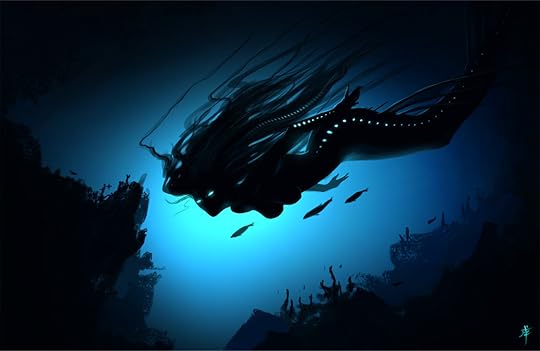
#SFWApro
December 7, 2015
We Are Easter Island
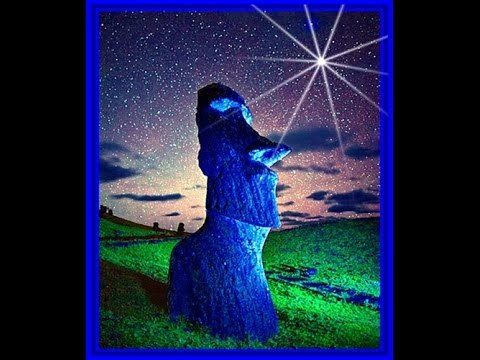
As part of a Goodreads Green Group monthly read, I just finished Naomi Klein's chilling nonfiction book This Changes Everything: Capitalism vs. The Climate. The challenge it presents for us as a species is daunting, and the looming implications if we don't act soon - and decisively - are dire. The more I read, and came to understand the opportunities for less drastic intervention we've squandered over the past three decades, the more I was reminded of another thought-provoking nonfiction book, Jared Diamond's Collapse: How Societies Choose to Fail or Succeed. The parallels were eerie, difficult to ignore, and our situation finally hit home with full force:
We are Easter Island.
As an SF writer currently on the third novel in a trilogy about Earth after climate catastrophe, this epiphany probably should have struck long ago. On some level, it did. But truth, if not stranger than fiction, can sometimes be more surreal; we really do, as a species, seem determined to ignore what's happening around us as countless other species vanish into extinction and the warming trends accelerate. Climate scientists are almost unanimous (in the neighborhood of 99+%) that man-made climate change is real, and threatens our entire biosphere. The science is clear. There are technological choices we can make to limit the damage and reduce the scope of the global disruption we're now doomed to face. And yet, we continue to waste time debating instead of mitigating.
I've always believed in science and technology, their miraculous ability to overcome obstacles, advance our common cause, improve our world. But science and technology aren't the issue now. We have the technical ability to transition away from the fossil fuel energy mix that threatens us, but we can't stumble through the dense political smokescreen. Maybe we're not Easter Island. Maybe we're that crazy old man with the hacking cough and emphysema who still smokes four packs a day and swears, between wheezes, that the anti-smoking movement is a "vast conspiracy to get cancer research funding from the NIH."
As a lover of science fiction, I've read more than my share of stark dystopian visions over the years. They struck me, not as predictive, but as cautionary tales: "here's what can happen if you take this craziness to the extreme." Right now, we seem determined to live out one of these cautionary tales to its tragic conclusion on a planetary scale. It scares me, profoundly, because I don't see how we write ourselves the happy ending.
Maybe watching the documentary Racing Extinction and Bill Nye's Global Meltdown in the midst of this reading project wasn't the best idea, either. They seem to have created the perfect psychic storm... or, given worsening weather extremes, super-storm might be more accurate.
But maybe that's exactly what we need. Maybe a confluence of forces - climate fiction from authors across traditional genre boundaries, nonfiction books and documentaries from science journalists, social media movements like that spawned by 350.org, urgent cries from organizations like IPCC and Union of Concerned Scientists - is essential to blow away the entrenched barriers to progress on this issue. I surely hope so.
I may not yet see the happy ending, but writing is rewriting. Perhaps some creative group editing, with each of us contributing a chapter or two, can still save us before our story ends far too soon.
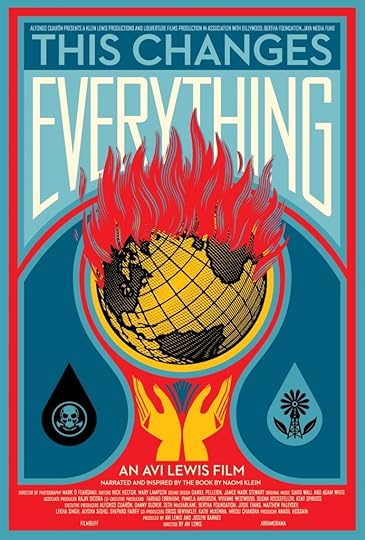
#SFWApro
October 29, 2015
SF Signal Guest Post on Aquatic Fiction

I'm honored to have a chance to contribute a guest post on SF Signal, the multiple Hugo Award-winning online fanzine for speculative fiction. This article extols the virtues of aquatic fiction, exploring the mystery, majesty, and menace of science fiction beneath the waves.
Many thanks to the talented staff of SF Signal for letting me chime in. You can view the article here:
Sea-Fi: When SF Plumbs the Ocean Depths
October 22, 2015
SFFWorld Guest Post on Cli-Fi

I'm honored to have a guest post featured in SFFWorld -- one of the premier websites for science fiction, fantasy, and horror -- this week on the topic of Climate Fiction. It's a subject near and dear to my heart, and many thanks to Dag Rambraut and the staff of SFFWorld for allowing me to contribute.
There may be a follow-up online panel debate on this topic hosted in the SFFWorld forums as well. I'll keep you posted. In the meantime, please check out the guest post about cli-fi!
What Is Cli-Fi and Why Does It Matter? by Brian Burt
October 13, 2015
Art of the Cyber-Con
The world changes at a blistering pace. We all spend more of our time - including social time - online. For my day job as a cybersecurity geek, I collaborate with colleagues in virtual meeting spaces to bridge the gap between people located in far-flung geographies and time zones. The same holds true with family and friends who live hours away. We text, we IM, we screen-share, we video-conference. We have conversations on Facebook and trade jokes on Twitter.
So I wasn't terribly surprised (although I was pleased and intrigued ;-) when I was recently invited to participate in a Fantasy / SF Convention hosted entirely in cyberspace.
This purely online event is touted as "the first ever Virtual (online) FantasyCon." It's certainly a first for me. As a novelist whose publisher focuses primarily on eBooks, this makes a sort of sense. For someone who reaches out to readers through online channels like Goodreads and Twitter, why not a convention where authors, artists, bloggers, and fans can congregate via Facebook?
The organizers of this event are inventive and energetic. They're arranging online scavenger hunts and giveaways, assembling virtual panel discussions, laying out cyber-booths, enabling online cosplay, and cleverly planning other surprises for attendees. Each day will feature a different theme, with the first day (Sunday, November 1) kicking off the festivities with my own "niche" genre, Sci-Fi Sunday.
Do I believe cyber-cons will replace conventions held in realspace? Absolutely not. But tickets for major cons can be expensive and tough to get, and the travel and lodging costs can be prohibitive for many. I think virtual cons will meet a need for budget-impaired (or vacation-challenged) people who want to socialize with kindred spirits but can't afford to fly to one of the coasts for a mega-gathering.
This Virtual FantasyCon runs from November 1 through November 8. It should be a fascinating social experiment. If you're on Facebook, feel free to register and stop by for a visit. In the immortal words of William Gibson, "we'll leave the Virtual Light on for you!"

#SFWApro
October 3, 2015
Saving Sammy... and Many Others
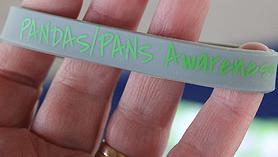
Very early in my foray into blogging, I posted about the way the nonfiction book Saving Sammy: Curing the Boy Who Caught OCD changed the pretty dismal trajectory of my oldest son's treatment regimen for a traumatic, and newly recognized, class of childhood illnesses grouped under the category of PANS. Thankfully, things have improved fairly dramatically over the past decade (since my son first became ill), and the treatment options for afflicted children nowadays are much improved. But kids, and families, still face uphill battles when pursuing a PANS diagnosis, and they still are exposed to skepticism and disregard from some portions of the medical community that is absolutely unconscionable. It turns a traumatic situation into complete torture for far too many suffering children and families.
Fortunately, there are brave and tireless parent advocates who keep rattling the cages of the medical establishment, government, and the health insurance industry. In my neck of the woods, a wonderful example of this is the Great Lakes
PANDAS/PANS Association and their upcoming charity auction to raise money for the cause. This is part of the national movement to mark the annual celebration of PANDAS / PANS Awareness Day.
I can't emphasize enough how terrible this class of illnesses is for affected kids and their families. And, likewise, I can't possibly commend the organizers of these charity fundraising events enough to do them justice. They are, literally, saving lives, or without question quality of lives. If you live near an event organized for families affected by PANDAS, PANS, or Lyme Disease, I wholeheartedly encourage you to show them whatever support you can.
Fiction transports us, but the cruel realities of the world in which we live sometimes trivializes any message we seek to convey through fictional stories. The stories of real torment, and courage, and triumph of children with PANS are more inspiring than anything a writer can concoct. Celebrate that victory over an illness that sets children's brains on fire but can ultimately be quenched with the help of sympathetic doctors and parents who refuse to surrender to the status quo!
#SFWApro
Work in Progress
- Brian Burt's profile
- 51 followers



